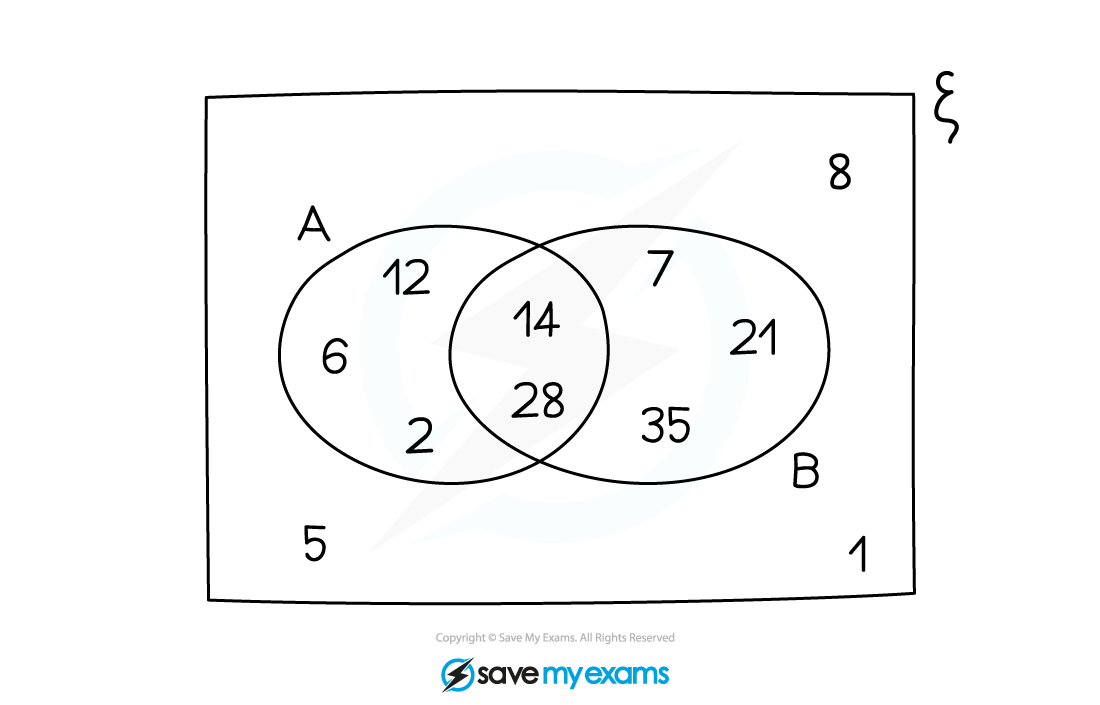Probabilities from Venn Diagrams (Cambridge (CIE) IGCSE Maths) : Revision Note
Did this video help you?
Probability & Venn Diagrams
How do I find probabilities from Venn diagrams?
Count the number of elements you want and divide by the total number of elements
For the Venn diagram shown below,
The probability of being in A is
There are 5 elements in A out of 11 in total
The probability of being in both A and B is
There are 2 elements in A and B (the intersection)
The probability of being in A, but not B, is
3 elements are in A but not B
Some harder questions are not out of the total number, but out of a restricted number
The probability of being in B, given that you are already in A, is
You are only interested in elements in A
There are 5 elements in A, out of which only 2 are also in B

Examiner Tips and Tricks
Be careful when filling in numbers for a Venn diagram
Some of the given numbers may need to be split between two sections of the Venn diagram
Suppose 10 people have a cat, 8 people have a dog and 6 people have both a cat and a dog
Out of the 10 people who have a cat
6 also have a dog
4 do not have a dog
Out of the 8 people who have a dog
6 also have a cat
2 do not have a cat
Worked Example
In a class of 30 students, 15 students study Spanish and 3 of the Spanish students also study German.
7 students study neither Spanish nor German.
(a) Draw a Venn diagram to show this information.
Draw the Venn diagram with its rectangular box and two (labelled) overlapping circles
3 students study both Spanish and German, so start here and work outwards
12 must study Spanish but not German (to get 15 in total for Spanish)
7 study neither, so this goes outside of the circles
To get 30 in total, 8 must study German but not Spanish

(b) Use your Venn diagram to find the probability that a student, selected at random from the class, studies Spanish but not German.
It helps to highlight Spanish but not German

Divide the number of students studying Spanish but not German by the total number of students
Students studying Spanish but not German = 12
Total number of students = 30
P(Spanish but not German)

You've read 0 of your 5 free revision notes this week
Sign up now. It’s free!
Did this page help you?

